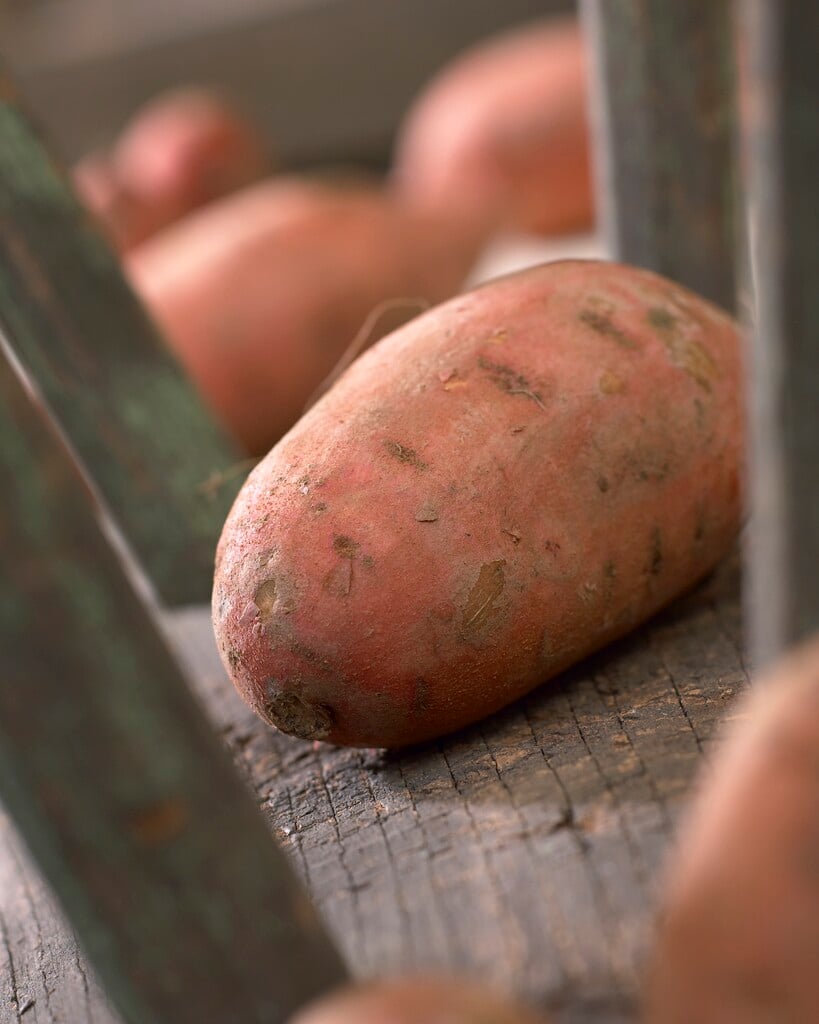Ipomoea batatas
sweet potato
A variable species of twining perennial climber, often grown as an annual, with some cultivars valued for their edible roots. Leaves are usually ovate to heart-shaped, sometimes lobed and sometimes flushed with purple. Funnel-shaped flowers, often purple or occasionally white, are produced in summer
Size
Ultimate height
2.5–4 metresTime to ultimate height
1 yearUltimate spread
0.5–1 metresGrowing conditions
Moisture
Moist but well–drained, Well–drainedpH
Acid, Neutral, AlkalineColour & scent
| Stem | Flower | Foliage | Fruit | |
| Spring | Green Purple | |||
|---|---|---|---|---|
| Summer | Purple White | Green Purple | ||
| Autumn | Green Purple | |||
| Winter |
Position
- Full sun
Aspect
South–facing or West–facing
Exposure
Sheltered Hardiness
H1CBotanical details
- Family
- Convolvulaceae
- Native to GB / Ireland
- No
- Foliage
- Deciduous
- Habit
- Climbing, Trailing
- Genus
Ipomoea can be annuals or perennials, often twining, or evergreen shrubs, with simple, lobed or dissected leaves and tubular or funnel-shaped flowers which may be solitary or borne in racemes or panicles
- Name status
Correct
- Plant range
- Indonesia
How to grow
Cultivation
Grows best in well-drained, sandy loam in full sun, with support for climbing stems. May be grown outdoors in warmer regions, but best grown under glass in colder areas (minimum temperature 7-10°C). This species is the parent to both edible sweet potato cultivars, and to ornamental cultivars that rarely flower but have attractive foliage and may be climbing or compact
Propagation
Propagate by seed, or by softwood or semi-ripe cuttings. Edible cultivars are grown from slips (rooted shoots from a tuber). These can be potted and grown indoors in spring and planted out once there is no risk of frost
Suggested planting locations and garden types
- Patio and container plants
- Sub-tropical
- Climber and wall shrubs
- Conservatory and greenhouse
Pruning
No pruning required
Pests
May be susceptible to glasshouse red spider mite and glasshouse whitefly
Diseases
May be susceptible to fusarium wilt, powdery mildews and virus diseases
Get involved
The RHS is the UK’s gardening charity, helping people and plants to grow - nurturing a healthier, happier world, one person and one plant at a time.
